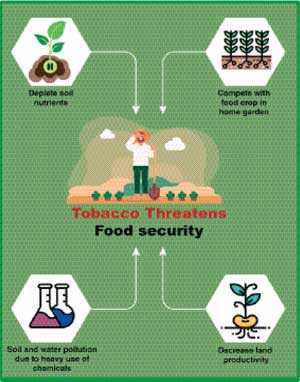Tuesday Feb 24, 2026
Tuesday Feb 24, 2026
Saturday, 27 June 2020 00:02 - - {{hitsCtrl.values.hits}}
 By Nimesha Dissanayaka
By Nimesha Dissanayaka
The prolonged curfew and lockdown measures introduced to contain the COVID-19 pandemic exposed the vulnerability of Sri Lanka’s food system.
The country’s food distribution channels collapsed due to travel restrictions imposed by the Government and the closure of major wholesale and retail markets, stifling consumers’ access to food. Meanwhile, digital market alternatives struggled to meet rising demand. Further, increases in food prices, especially fruits and vegetables, reduced the affordability of nutritious food. The situation worsened due to high unemployment among daily wage earners. More worryingly, restricted access to agricultural inputs, such as fertiliser and seeds, signals shortages of food production in the future.
The Government has taken many initiatives, such as purchasing and distributing fruits and vegetables at the Divisional Secretariat level, introducing maximum prices for vegetables, and launching the ‘Saubhagya’ home gardening program, to help both food producers and consumers and to support various aspects of food security, including food availability, and access to and affordability of nutritious food. Among these measures, the Saubhagya program is at the forefront. Tobacco, a nonfood crop in direct competition with food crops grown in home gardens, could pose a severe threat to the primary objective of this initiative.
In 2017, the Government made a commitment to ban tobacco cultivation by end 2020 and launched a program to discourage farmers from growing tobacco and instead switch to sustainable alternatives. While the transition period of the proposed cultivation ban is nearly over, the program is currently at a deadlock.
This article examines how tobacco cultivation could weaken the Government’s efforts to promote home gardening and why the transformation initiative should be sped up to improve food security during the COVID-19 outbreak.
Tobacco versus home gardening boom
 Home gardening started gaining worldwide attention during lockdowns resulting from the pandemic, as it is a promising approach to enhance households’ food security and wellbeing. Home gardens offer many perks, including improved food and nutrition security, enhanced incomes, part time employment opportunities, and environmental benefits.
Home gardening started gaining worldwide attention during lockdowns resulting from the pandemic, as it is a promising approach to enhance households’ food security and wellbeing. Home gardens offer many perks, including improved food and nutrition security, enhanced incomes, part time employment opportunities, and environmental benefits.
Sri Lanka’s Government too launched its own home gardening initiative, the Saubhagya National Program on Harvesting and Cultivation, aimed at developing one million home gardens. To kick off the program, the government distributed packets of vegetable seeds (five varieties of seeds per packet) among interested households. Tobacco cultivation could directly challenge this initiative, as tobacco is a nonfood crop grown in home gardens of small scale farmers in Sri Lanka.
At the household level, food security refers to the ability of the household to secure, either from its own production or through purchases, adequate food for meeting the dietary needs of all members of the household. Tobacco does not produce consumable food or nutritional sources and does not help improve food security. Some may argue that a higher income and improved purchasing power could indirectly contribute to tobacco food security. Nevertheless, the literature provides further evidence to prove that tobacco is not profitable for farmers, and farmers often miscalculate their investment returns.
The Sustainable Agriculture Development Program (SADP), a corporate social investment project of the Ceylon Tobacco Company (CTC), has given subsidies and technical support to selected farmers to cultivate tobacco in home gardens, together with other cash crops and animals. There is no guarantee that the lands benefitting from the Saubhagya home garden program will not be used to grow tobacco. Historically, market linkages between commercial tobacco companies and smallholder farmers have played a major role in farming decisions. However, there are only a few public-private-producer partnerships (4P) for other food crops. As such, farmers are more likely to opt to grow tobacco as they are protected by the tobacco company and its guaranteed market. Therefore, developing marketing contracts for a food crop will give the edge over a harmful crop, such as tobacco in terms of both the guaranteed income and food security.
Tobacco is not sustainable as a home garden crop
Tobacco’s impact on home gardens is moderate, but overall it imposes huge environmental costs. Growing tobacco in the mid and up-country areas of Sri Lanka has caused severe soil erosion, leading to the downstream sedimentation, depletion of water resources, and a decline in land productivity.
The National Action Plan (NAP) for Combating Land Degradation in Sri Lanka 2015-2024 estimates that the soil erosion rate in sloping lands where tobacco is cultivated without any soil conservation measures is 70 Mt/ha/year, the highest compared to all other crops. It further highlights that heavy soil erosion caused by tobacco cultivation has severely degraded the soil in areas such as Hanguranketha, Walapane, and Teldeniya in the Kandy District.
Soil and water pollution due to the substantial application of chemicals, including pesticides, fertilisers, and growth regulators, aggravates the existing problem of soil erosion. Also, tobacco crops deplete soil nutrients by taking up more nitrogen, phosphorus, and potassium, compared to other home garden crops. Therefore, farming tobacco repeatedly reduces land fertility, resulting in low output and narrow profit margins from tobacco, which could affect the profitability of other food crops grown in the same home garden as well.
Moreover, handling tobacco leaves can cause a disease called Green Tobacco Sickness that adversely affects farmers’ health and labour productivity. As tobacco cultivation has many health, economic, and environmental consequences, it cannot be considered a sustainable home garden crop.
Way forward
 Growing tobacco will hardly contribute to household food security, which is a growing concern during the pandemic. The COVID-19 lockdown and the speedy policy drive towards home gardening promotion have given a golden opportunity for policymakers to revamp the sluggish transformation program to ban tobacco cultivation and promote household food security. It is also important to discourage the cultivation of tobacco as part of a strategy to reduce tobacco use in Sri Lanka, which will ultimately benefit the health and economic sectors.
Growing tobacco will hardly contribute to household food security, which is a growing concern during the pandemic. The COVID-19 lockdown and the speedy policy drive towards home gardening promotion have given a golden opportunity for policymakers to revamp the sluggish transformation program to ban tobacco cultivation and promote household food security. It is also important to discourage the cultivation of tobacco as part of a strategy to reduce tobacco use in Sri Lanka, which will ultimately benefit the health and economic sectors.
Further, agricultural extension services should raise awareness among farmers on the detrimental impacts of tobacco cultivation in terms of household food security, especially during pandemics and on the economic benefits that can be gained by cultivating different alternative crops in home gardens. One of the crucial aspects to consider when introducing alternative crops to farmers is the establishment of local farm market relationships. Public-Private-Producer Partnerships (4P) would be a better option to absorb the marketing pressure of the semi-subsistence level farmers during transformation. Strengthening local farm-market relationships for food crops will ultimately generate a higher income for the farmer and improve the food security of households. These will help to defeat the repeated attempts made to introduce tobacco cultivation for farmers in Sri Lanka by commercial tobacco companies and make farmers more resilient to food insecurity during pandemics.
[Nimesha Dissanayaka is a Research Assistant at the Institute of Policy Studies of Sri Lanka (IPS) and can be reached via email [email protected]. To view this article online and to share your comments, visit the IPS Blog ‘Talking Economics’ - http://www.ips.lk/talkingeconomics/]